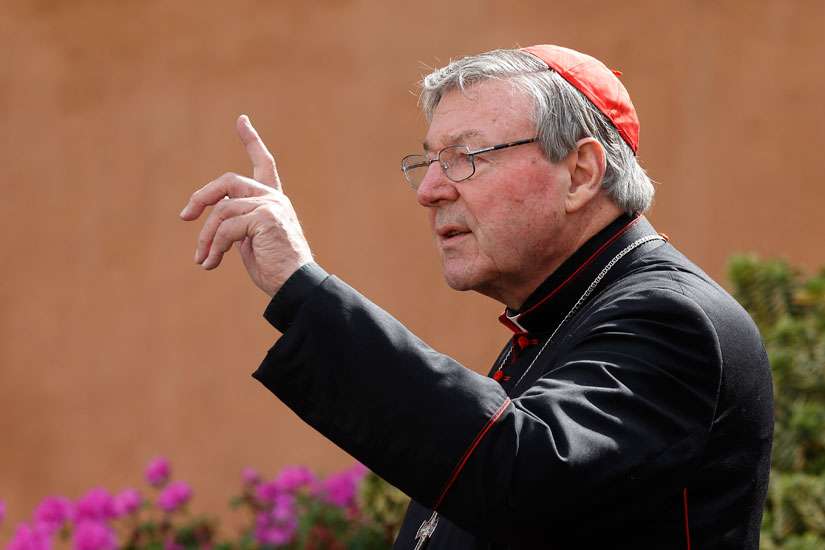While their role is not to take over parish finances or "sideline the parish priest" and "control the life of the parish," laypeople are called to participate in the financial administration of the Church through "dialogue and co-operation," the cardinal said May 12.
Pell spoke about responsible lay participation in Church finances to business leaders, Catholic doctrine specialists and economic and social scientists attending a three-day international conference on the role on businesses in the fight against poverty.
The conference was sponsored by the Centesimus Annus Pro Pontifice Foundation, which seeks to implement the teaching of St. John Paul II's 1991 encyclical on social and economic justice.
"Your contribution to the running of parishes, dioceses, hospitals, schools, agencies — the proper financial running of these institutions — is absolutely essential today," Pell said.
The cardinal confessed that while he "never anticipated spending my time working with money," his role further impressed on him the importance of good governance in financial matters, particularly within the Church.
"I believe very strongly that we must order our affairs well," he said. "We must be a good example to people outside."
Pell said that after the "great sadness" of the clergy sex-abuse scandal, those "who are hostile to Christianity will be looking for every mistake we make in the administration of money."
In many parts of the world, he said, "I think the worst is behind us, but people will be searching for the next wave of attacks on financial administration."
For this reason, he continued, the Church needs people of "good integrity" who not only comprehend Jesus' understanding of money but apply it for the betterment of those most in need.
"Jesus knew the power of money to fascinate, corrupt and capture the human heart. And what is true with everyone — especially those tied up with money — is we have to choose God or money, you cannot be the slave of two masters," he said.
"As followers of Jesus, we have to take His teaching seriously. Once again, it's not just the personal lifestyle of the Holy Father but his insistence that we have to work — not for handouts — but to improve the capacity of the poor and the unfortunate to live with dignity," he said.


